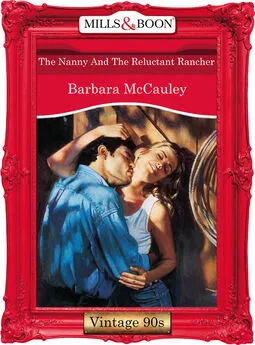Barbara Hambly - Dead water
- Название:Dead water
- Автор:
- Жанр:
- Издательство:неизвестно
- Год:неизвестен
- ISBN:нет данных
- Рейтинг:
- Избранное:Добавить в избранное
-
Отзывы:
-
Ваша оценка:
Barbara Hambly - Dead water краткое содержание
Dead water - читать онлайн бесплатно полную версию (весь текст целиком)
Интервал:
Закладка:
January blinked for a moment at this concept—by running onto the bar the boat had in effect touched the bottom of the river, and couldn't sink—but Sophie went on breathlessly.
“Then Julie said, ‘I'm going now! We must be near shore, and the water shallow, to run on a bar. I can get to shore, I know it!' Oh, poor Julie! I only hope she made it to shore!”
Eleven o'clock, then, thought January, unless something delayed her . . . But what would have delayed Julie for the hour that it took to walk the boat over the bar?
Which left, unfortunately, only one other black culprit with reason to wish Weems harm, and without an alibi.
Benjamin January.
“Do you know if Mr. Weems came to see your mistress at all?” asked Rose sympathetically.
Sophie shook her head tragically. “I know he didn't. She lay awake far into the night, waiting for him—when I came up in the morning to tell her of that . . . that horrible sight, that horrible thing Jim saw . . . all the lamp-oil was burned away. When I opened the door the first thing she said was, Run to Mr. Weems's stateroom, and learn why he did not come last night.”
“She did not go look herself, earlier in the night, then?”
Sophie recoiled in shock at the suggestion. “She was not dressed! She was so much the lady, she would not have ventured about the boat only in her wrapper and her nightgown! Oh, if only I had been there, I could have gone and searched in the night myself! Perhaps, if I had found him, I could have prevented his terrible death!”
“And when you told her . . . ?” prompted Rose gently.
“My poor Madame,” whispered Sophie. “The shock of it . . . all she could do was sit up in bed and say, What? Just like that . . . as if she could not believe. Then she said, Good Christ, and got out of bed without another word, and dressed. No tears,” she whispered, “though she has been weeping all the afternoon in the Parlor, with the other ladies about her. . . .”
I'll bet she has, thought January. After breaking into Weems's stateroom and searching . . . for what?
“It is a most tragic story. And I am the more grieved for hurting her, after all she has suffered already,” he said gently. “It might indeed have been my master who killed Mr. Weems.” He spoke reluctantly, like one convinced against his will. “But there are other evil people on this boat who might also have done this terrible thing. Not all of them,” he added, lowering his voice to a whisper, “men.”
Sophie's beautiful eyes widened and her lips parted with understanding and shock, and she glanced automatically to her left, the direction in which Miss Skippen's stateroom lay. Rose, taking her cue, produced a perfectly-judged little gasp and breathed, “ Miss Skippen? ”
January raised his eyebrows: like Hamlet's friends, We could an if we would, and, If we list to speak . . .
Rose prompted, “But surely Julie was with her?”
“Not after we ran onto the bar,” answered Sophie. “And Miss Skippen didn't undress as Mrs. Fischer did—Julie told me. In fact, she said Miss Skippen . . .”
At the forward end of the promenade Thucydides appeared, carrying a tray of lemonade. As he passed January and Rose in Mrs. Fischer's stateroom doorway, he said quietly, “Mrs. Fischer's coming,” then walked on by without breaking stride. January and Rose followed him immediately, without even a word to Sophie, who for her part instantly bowed her head over her sewing so that she would be stitching away industriously when her mistress rounded the corner.
It wasn't until dinnertime that January heard what Miss Skippen had done on the night of Weems's death. He spent the twilight hour with Rose, huddled next to the galley passway beside a makeshift smudge of lemongrass and gun-powder that Eli had rigged to give some relief from the mosquitoes that swarmed in the dead water under Hitchins' Point. Around them, deck-hands beat a steady trail into the engine-room with wood, to Eli's loudly-voiced annoyance. In the cobalt gloom the passway, and the engine-room door, looked like the furnace-gate of Hell.
“You want maybe to sit here all day tomorrow, with all those passengers eating their heads off?” roared Molloy's voice. “Settle in, maybe, set up camp on the shore? This is a steamboat, by God, and what we need is steam !”
The pilot came stamping out of the engine-room and swung himself around the newel-post and up the stair. January glanced across at Rose and raised his brows: “Any ideas on how we might be able to get into his stateroom for a look at the floorboards?”
“Thucydides has spare keys to every stateroom on the boat,” she replied quietly. “If he was good enough to warn us about Mrs. Fischer . . .”
January shook his head. “Any slave would do that for any other slave.” And when Rose—a freewoman born and bred—looked inquiring, he explained, “You ever heard field-hands singing, and they'll change their song when the overseer rides by, or when a party of whites rides along the road? They'll sing something like, “ Chink, pink, honey o lula, 'way down in the bayou . . . go wade in the bayou .” His deep, velvety baritone shaped one of the earliest field-songs he knew. “I was five or six, before I understood what it meant when they'd sing it. . . . That they'd heard rumor someone had run, and they were singing warning, if the runaway was resting near, to get into the bayou so the dogs couldn't sniff him out.”
“My mama used to sing that song when she'd cook,” added Roberson's valet, old Winslow, coming over at the sound of January's singing. “She was from bayou country, but we didn't have bayous in Virginia where I was born. They'd sing in the tobacco-fields,
Oh hide me in the rock,
Oh Lord, oh Lord,
Oh hide me in the rock. . . .
His voice lifted in the rolling rhythm, echoing out over the dark water. “Then they'd go on, ‘ Oh hide me in the tree, Oh hide me in the earth, Oh hide me in the sea . . . .' We children would all know it was somebody who'd run, though I don't recall anyone ever tellin' us so.” He smiled reminiscently, looking back from a lifetime of clean, comfortable house-service, then shook his head. “One fella—from the plantation next to ours—he ran off, and hid out in our mule-barn for three weeks. Everybody on the place knew he was there, while the patrollers hunted clear up to Fairfax County. He finally got out in a wagon of hay.”
Molloy came down the steps again, strode past Rose and January to where Cain was just coming from checking the spancels on his slaves. As he swaggered past the dealer, the pilot said something quietly—impossible to hear, but the angle of his head, the crowding jostle of his shoulder, were like a shove.
Torchlight shone on Cain's pockmarked, impassive face as the bigger man jostled by. Winslow murmured, “Molloy better watch how he mess with that man. That's a hard man, an' no mistake.”
“They both strike me as hard men,” remarked Rose.
The gray-haired valet shook his head. “Molloy, he a loud man, an' he no gentleman, but he's not hard. Not hard like that Cain. A bully'll crowd a weaker man, or a nigger, someone who can't fight back, but he like a barkin' cur-dog. He think Cain ain't gonna push back, 'cause of that letter he's got—”
“Who's got?” asked January. “Molloy?”
Winslow nodded. “This mornin', when it start to rain so bad, I went to the stateroom to fetch Mr. Roberson's umbrella for Mrs. Roberson. Our stateroom's next to Mr. Weems's, and I heard someone movin' around in there. An' I stay still, wonderin' if it's Thu makin' Mr. Weems decent, or Mr. Weems himself . . . Mr. Roberson gives lectures about history at the University in Lexington, an' he's always tellin' me how there ain't no such thing as the dead walkin' or whisperin' or bleedin' when their murderer comes near, but I don't know about that. I seen some damn strange things in my life.”
He watched as Molloy moved on away toward the bow. In the darkness the end of Cain's cigar glowed briefly brighter, like the Devil's eye when Satan speculates evil in Hell.
“So I hears the door open an' I figures it got to be Thu, 'cause whatever I hear of haunts, they don't bother openin' no doors. But next minute I hear Mr. Molloy say, from out on the promenade, It's no good lookin'—I got it. ”
“Got what?” asked January in his most fascinated voice. And indeed he was—he traded a sidelong glance with Rose, and returned his gaze to Winslow's face.
“Got no idea,” replied the valet, shaking his head. “But Mr. Cain say from in Weems's stateroom, I don't know what you're talkin' about, an' Mr. Molloy said, Have it your way—BREDON. But if you don't want to see it printed in the Mayersville Gazette , you and I better come to an understandin' . Then he walked away—I heard his boots goin' off along the promenade—and Cain must have stood there in Mr. Weems's stateroom for two minutes 'thout movin', for I didn't hear a sound. Then he walks off, too, fast.”
“ Printed in the Mayersville Gazette,” repeated Rose, and propped her spectacles on her nose.
“So I think it got to be a letter,” concluded Winslow. “A letter Weems had that Molloy got hold of somehow. You mark my words, whatever they sayin' about your master”—he jabbed a finger at January—“it was either Mr. Molloy or Mr. Cain that pushed poor Mr. Weems overboard. You just mark my words.”
And he turned away to greet Andy and Jim as the two valets came down the steps, shaking their heads over the lateness of supper and the fact that the Silver Moon was likely to be sitting still until after midnight.
“Your words are definitely marked.” January watched as the three servants greeted one another and displayed tidbits abstracted from the galley or stateroom trays. “But unfortunately they won't do us much good until we can figure out a way Cain could have murdered Weems without Gleet becoming aware of it, or Molloy could have done so while he was in the pilot-house with Souter.”
“Molloy might not have been there constantly once Souter came on,” pointed out Rose. “I can easily see him leaving his replacement for a few minutes, saying he's going to check on the paddle after thrashing loose from the bar. . . .”
“And what?” asked January. “For him to have been gone any substantial length of time would rouse comment from Souter. And if Molloy had been on watch since six, he wouldn't have known where Weems was or what he was doing. It's not a big boat, but it would take time to search it. Still, we can ask.”
Sophie appeared a few minutes later, silent and a little standoffish—it was clear Mrs. Fischer had re-indoctrinated her in the villainy of January and Hannibal. It took twenty minutes of Rose's patient gossip and sympathy to return to the interrupted account of Theodora Skippen's nocturnal habits, with the only result being the information that Miss Skippen was in the habit of remaining dressed after she retired for the night when she was waiting for Mr. Molloy.
“If he didn't come straight there from the pilot-house at midnight, she would sometimes go up looking for him, or tap on the windows of the Saloon. But why would she have wished harm to poor Mr. Weems?”
“Perhaps she knew him earlier, in Natchez,” suggested Rose.
“No, I don't think so,” Sophie said. “Julie once spoke of Miss Skippen saying, when she was drunk, that Mr. Weems had a secret: You'd hardly think it of that silly little man, but that's what Mr. Molloy tells me. She meant that he was keeping Mrs. Fischer, but I think if she'd known him, she'd have said so. Julie says Miss Skippen isn't very discreet when she's had a few brandies.”
Читать дальшеИнтервал:
Закладка:








